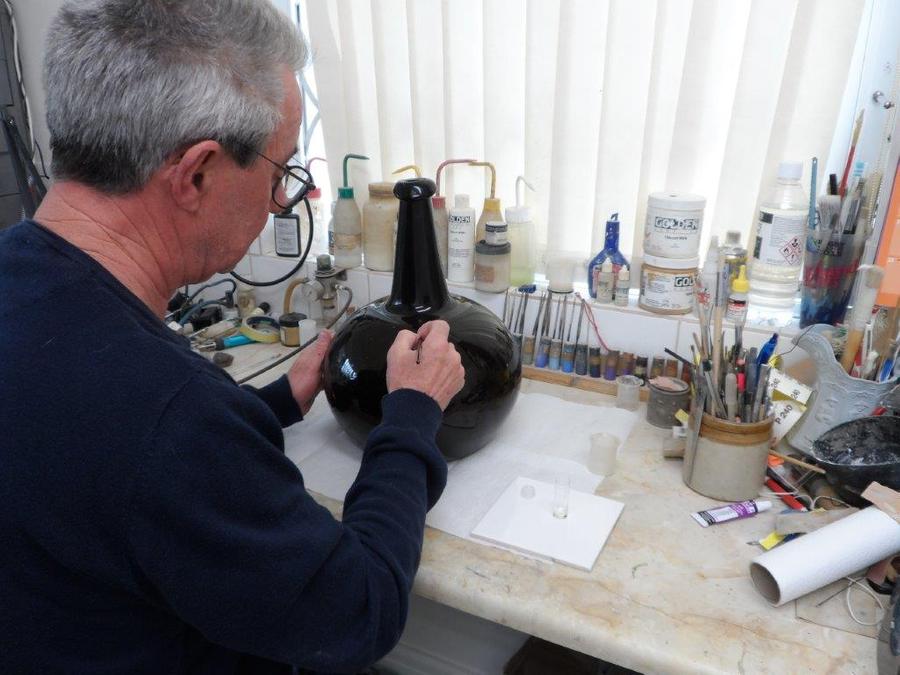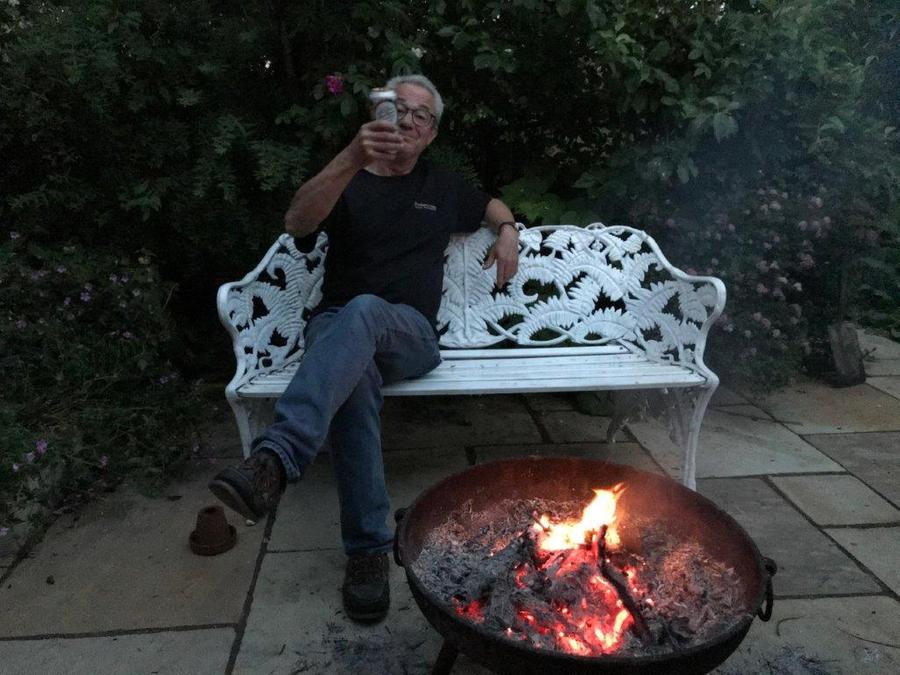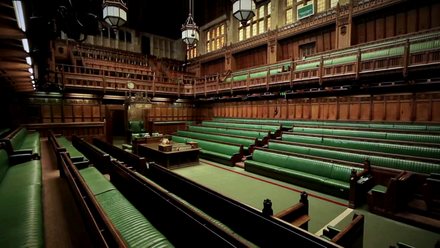It’s been a rollercoaster financially, personally, emotionally, professionally and a lot of other ‘allys’ as well.
As lockdown came, I wasn’t too bothered, I had enough work to carry me through the next three months: work completed, waiting to be collected, and enough work lined up to carry me through into the next financial year (2021-22). I was sure it would all be over by May.

Come the first weeks of April, reality began to kick in. I started to get emails cancelling or postponing work. Contacting my customers with finished work, they were all unable to collect and pay. Some offered to send payment; others said they’d come and pay as soon as lockdown was over.
Fair enough, the majority weren’t huge bills and “getting heavy” over one or two hundred pounds loses you customers. Anyway it would all be over by May, and I had enough reserves to carry me through, then the reality really began to kick in…
I diligently read the small print for each support loan or grant the Government launched but somehow I always managed to slip through the net. I did not qualify for any of them. As the director and sole employee of my own limited company I was excluded from any kind of help, along with 700,000 other business owners. I could furlough myself but to quote:
"Company Directors: Where furloughed directors need to carry out particular duties to fulfil the statutory obligations they owe to their company, they may do so provided they do no more than would reasonably be judged necessary for that purpose, for instance, they should not do work of a kind they would carry out in normal circumstances to generate commercial revenue or provides services to or on behalf of their company. This also applies to salaried individuals who are directors of their own personal service company (PSC)."
So, it seemed that I could furlough myself if I wrote myself a letter saying that my company still needed me (!?!) but that meant I could not promote, or do any estimates for enquiries about work, so I was effectively snookered. A phone call to my accountant confirmed it. I therefore chose to busy myself with jobs around the house and garden, thinking that surely something new and better would be announced soon. By mid-May I felt sure that I was going to be one of the 3 million people destined to receive no help from the Government.
But what’s that? The Welsh Government announces a Cultural Resilience Fund! And they actually mentioned conservators!
I don’t know whether my emails to my Welsh Assembly Member made any difference, but I would like to think they did. And I would like to thank Jane Hutt AM for the brilliant support from her office, even to the point where I ended up consoling one of her representatives because he had become disheartened by the challenge of trying to help all the people who had been left out. [Cheers Gareth!] I had to jump through some hoops to get it, but I eventually got a support grant, just as my reserves had run out. At last the pressure was off, for a short time anyway.
The phone didn’t ring for months apart from phone calls from other conservators asking for advice (and enquiring about my welfare – thank you) and I helped a few conservation students with their dissertations too. I also acquired an honorary role as Covid-19 Special Advisor to Icon’s policy team. Other enquiries came from museums that I have built relationships with over the years, about acquisitions and where and what things were in their collections.

Peter working on an onion bottle
I spent my time working on my own collection and putting some of my own collection into auction. This meant saying goodbye to some old friends – objects that I’d had for forty years – but “needs must when the devil drives.” And I have also learned about ‘pivoting’. In fact I’ve pivoted to the point of pirouetting. But it’s difficult to rebrand yourself when everyone else is shut down or furloughed, and had their budgets cut, so you have to do what you can. You try to maintain contact, but everyone’s working from home, so unless they’ve given you their personal number, all you get is an answerphone.
By June, things were staring to relax, and I spent a pleasant summer walking to my favourite pub 5 miles away. I took my time getting there – through a country park, and along the coast, birdwatching and butterfly spotting on the way. That first day in The Anchor was brilliant. All the regulars were there, and finally I enjoyed some socially-distanced, social interaction.
September came and brought the hope of another grant available from Welsh Government. More hoops to leap through, but I got it (and it has carried me through to the end of March 2021). There was no prospect of any meaningful work, so it was the best thing on offer apart from the decorating jobs, building maintenance and occasional gardening for other people. It’s money and it all helps.
An interesting development was the public interest in conservation sparked by The Repair Shop. I was now deluged with enquiries from people who had become avid fans of Jay and the team during lockdown. At first, I spent some time sending treatment proposals and estimates, but in the end I’d spend two minutes searching on eBay and send them the reference number to a similar item to replace their broken object. It was a polite way of saying “go away and bring me something decent to work on.”
I drifted into November and December, receiving the usual crop of enquiries two weeks before Christmas:
“I need xyz done before Christmas because I want to give it as a present.”
“How long have you had it?”
“About 5 years.”
I wish I had the courage to say: “So you leave it two weeks before Christmas and then expect me to do six weeks work?” I get these enquiries every year but this time it was harder to take, knowing that I’d been professionally idle for most of the last few months.
As we turned the corner into the new year the phone started to ring again – but this time with meaningful enquiries. Are things looking up? Do I dare to hope? So it seems that after a highly unusual year I’m back in the game again. Thoughts of retirement had crossed my mind, but I enjoy what I do so those have been shelved – for the time being anyway!

Taking a well-earned break in the garden
And now we wait to see what the coming financial year holds. I got my last outstanding payment from the previous financial year this week, almost a year after the work was completed. I’m very aware that it’s not only conservators who are finding things difficult. But I have to hope that museums and galleries are starting to plan for the future and that they will protect the small portion of their stretched budgets that supports the conservation of collections.
The ecosystem of the conservation sector is fragile, and we need them to restart commissioning conservation work from freelancers and microbusinesses. Two thirds of conservators’ work is carried out on a freelance basis; unless we are supported NOW, an important and irreplaceable resource will be lost.


